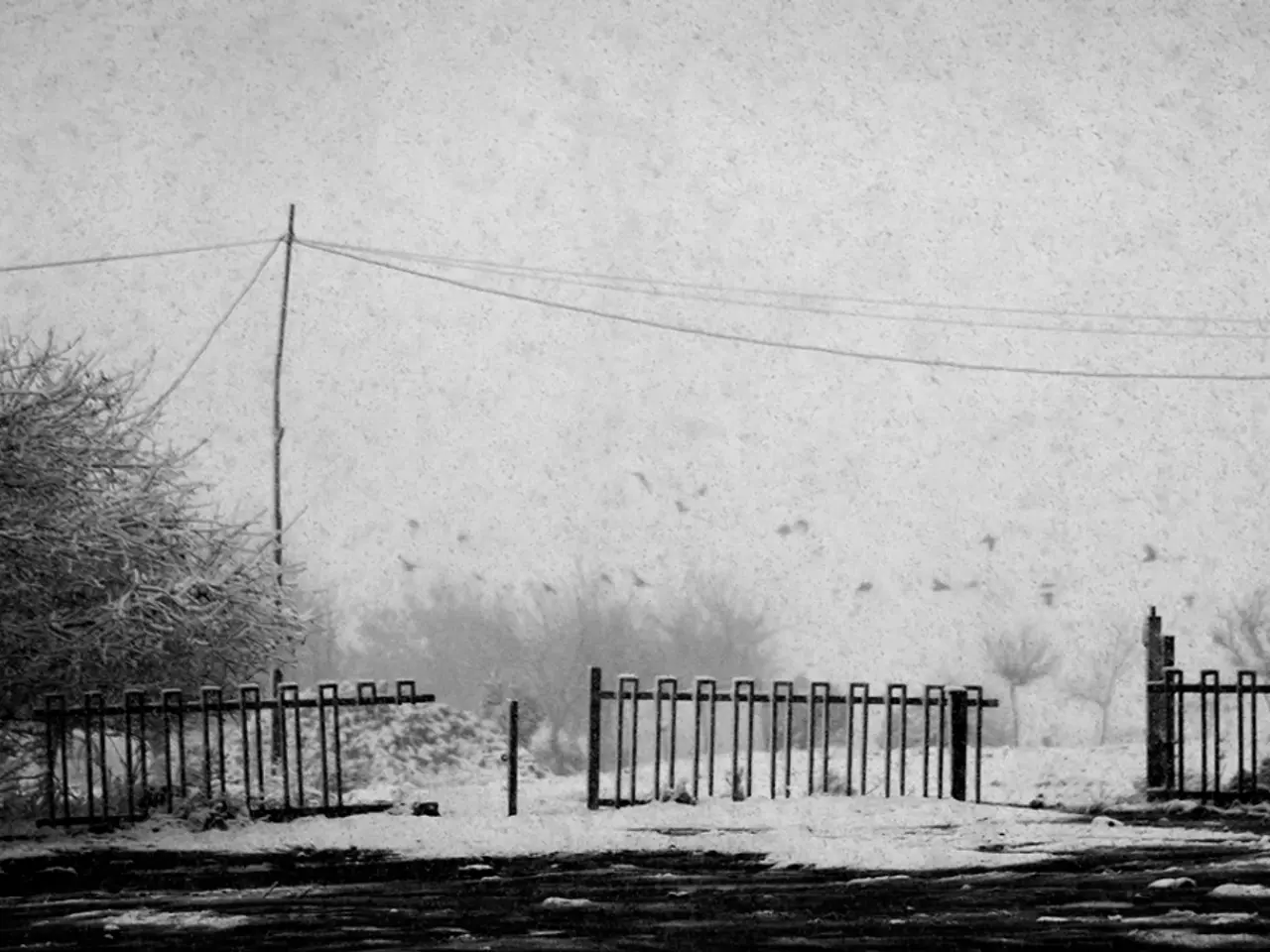Heart Failure Linked to Adverse Weather Conditions According to Extensive Research Study
In the winter months, cold weather can be more than just a nuisance for elderly individuals with heart failure. A growing body of research indicates that the drop in temperature can trigger a series of biological responses that put additional strain on the heart, increasing the risk of heart failure-related events and cardiovascular complications such as heart attacks and strokes.
The key biological responses to cold exposure include vasoconstriction, increased cardiac workload, shivering, and reduced thermoregulation. To conserve body heat, blood vessels tighten, increasing peripheral resistance and raising blood pressure, which strains the heart. The heart must pump against higher resistance, potentially exacerbating existing heart failure and increasing oxygen demand. Muscle activity to generate heat raises metabolic demand and increases oxygen consumption, further stressing the heart. Elderly individuals have diminished ability to adapt to temperature changes, making them more vulnerable to cold-induced cardiovascular stress.
These physiological stresses contribute to a higher incidence of heart failure exacerbations and cardiovascular mortality in elderly people during cold weather, as the body's compensatory mechanisms are less effective. The sympathetic nervous system is activated under cold stress, adding to cardiovascular strain by raising cortisol and adrenaline levels.
Heart failure is one of the leading causes of hospitalization in people over 65, with associated healthcare costs draining billions from public health systems every year. A 16-year Swedish study covering over 280,000 patients found that cold weather increases heart attack rates across all regions and demographics, even among those without prior heart issues. A major study tracking over 112,000 patients found a 0.7% increase in hospitalization or death linked directly to that tiny drop in temperature.
Weather is no longer just a background variable, it's a primary player in public health. However, medical professionals rarely incorporate weather into heart failure management, despite growing research that links environmental stressors to cardiovascular events. A significant portion of heart failure hospitalizations might be preventable if clinicians tracked patient vulnerability alongside upcoming weather forecasts.
Monitoring the forecast, talking to your doctor about seasonal care, optimizing indoor heating, avoiding outdoor exercise in cold weather, being aware of symptoms, and adjusting lifestyle are ways to mitigate risks during cold weather. Winter doesn't have to be a season of silent danger if there is awareness, small changes, and better monitoring.
Climate change is making these weather-related risks worse, particularly for the elderly and chronically ill. Cold months consistently see spikes in mortality and ER visits, even when controlling for other health conditions. A 1 kPa rise in atmospheric pressure, something that can happen quickly with cold fronts, was associated with a 4.5% higher risk of heart failure-related events. Preventing heart failure hospitalizations may come down to what's happening outside the hospital, not just inside it. The weather forecast may hold the most predictive power, especially for those most at risk.
In conclusion, cold weather poses increased risks for elderly individuals with heart failure. By understanding these risks and taking proactive steps to mitigate them, we can help ensure a safer and healthier winter season for vulnerable populations.
- Winter cold can worsen medical conditions, such as sleep disturbances, for elderly individuals with heart failure.
- Workplace wellness programs should consider the impact of cold weather on chronic diseases, particularly respiratory conditions.
- Digital health platforms can provide reminders for taking necessary medications and monitoring symptoms during the winter months.
- Dietary adjustments, such as focusing on nutrition rich in probiotics, can support digestive health in cold weather.
- Eye-health can be affected by dry conditions in cold weather, so using artificial tear drops or humidifiers may be beneficial.
- The strain on the heart from cold weather can exacerbate hearing loss, making it essential to schedule regular hearing tests.
- Health-and-wellness apps can help elderly individuals monitor their heart rates and blood pressure in cold weather.
- Regular fitness-and-exercise routines for maintaining cardiovascular health may need adjustments during cold months.
- Lifestyle changes, like quitting smoking and managing stress, can reduce the risk of autoimmune disorders and neurological disorders during cold weather.
- Skin-care products with moisturizing properties can support skin health and alleviate skin conditions during cold weather.
- Therapies-and-treatments like CBD oil may help manage anxiety related to climate change and its impact on public health.
- Mental-health concerns can worsen during cold months, prompting a need for increased support from mental-health professionals.
- Men's-health and women's-health issues like hormonal fluctuations can be impacted by changes in ambient temperature and require attention during cold weather, emphasizing the importance of regular medical check-ups and screenings for all adults.




